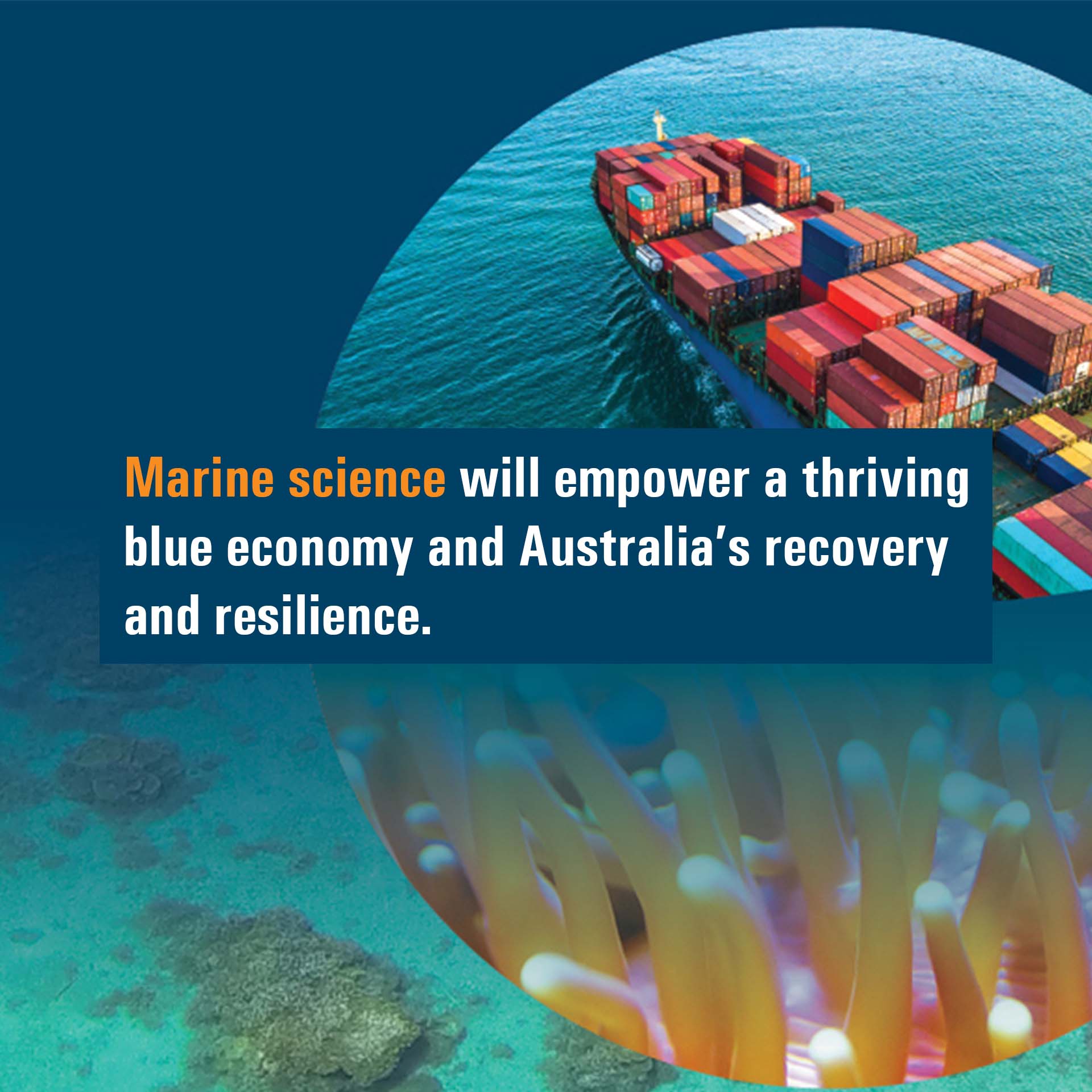The National Marine Science Committee (NMSC) have released its report The Midway Point today.
The future of marine science in Australia, and its recent achievements, has been laid out in a new report by the country’s leading marine and coastal research organisations.
Today, the National Marine Science Committee (NMSC) released its report The Midway Point, a detailed look at the sector’s progress in achieving eight recommendations first described in the National Marine Science Plan 2015 – 2025, released six years ago. The report introduces three new recommendations.
Toni Moate, Chair of the NMSC, said that increasing pressures on our marine environment and new emerging priorities have driven the need to produce the report which provides a roadmap for how marine science can contribute to a prosperous and healthy blue economy.
“The Midway Report makes it clear that sustainable management of Australia’s marine estate is essential for future proofing the health of our oceans, coasts, economy and people,” said Ms Moate.
“This review of Australia’s marine science priorities arrives at a crucial time for collaboration and progress in marine sciences given this year’s commencement of the UN Decade of Ocean Science for Sustainable Development and the Australian Government’s commitments through the High Level Panel for a Sustainable Ocean Economy”
“Our report reflects the discipline and ambition of Australia’s marine science community, and our commitment to collaborate at a scale large enough to tackle the most pressing challenges facing ocean and coastal ecosystems,” said Ms Moate.
“With a strong blue economy, we can chart a course through the uncertainties of the future and create long-term prosperity of all Australians,” said Ms Moate.
Kim Picard, Deputy Chair of NMSC, said that the report brings our attention to success stories from marine science and the blue economy that demonstrate the advances of the research community that have better prepared Australia to apply its science, technology, engineering, mathematics, and Traditional-knowledge capabilities to tackle threats to our oceans and coasts.
“Our report celebrates the achievements of marine scientists and science organisations in driving evidence-based sustainable growth of the blue economy and identifies priorities for the future of marine science,” said Ms Picard.
“Examples of success include the establishment of the Blue Economy CRC, funding of national research vessels and the expansion of the Integrated Marine Observing System (IMOS).
“The Report calls on all sectors of society to play their part in the development of Australia’s blue economy through a series of actions, like the development of truly national research programs, industry science collaborations, post-Covid investment in science, and sharing responsibility for the long-term health of our oceans and coasts,” said Picard.
“IMOS plays a key role in supporting the sustainable use and management of Australia’s marine estate and growing the blue economy,” said Dr Michelle Heupel, IMOS Director.
“IMOS has expanded in the six years since the National Marine Science Plan 2015-2025 was released to support critical research into climate change and coastal systems.”
“The Midway Point report highlights the continued need for the ocean observations that IMOS provides, which are used in many organisations and industries such as the Bureau of Meteorology, Department of Defence, ports, fisheries, renewable energy, oil and gas to understand ocean state, trends and processes affecting their operations,” said Dr Heupel.
“The Report calls for ongoing funding for IMOS beyond 2023, as well as a new recommendation to expand the Australian Ocean Data Network (AODN). Expanding the AODN will develop and enhance Australia’s capability and capacity in managing, delivering, analysing and visualising a wide range of marine data from various sources.”
The National Marine Science Plan 2015-2025: The Midway Point can be accessed at www.marinescience.net.au/midway
The Conversation article “Australia’s marine industries deliver $80b a year. But without more scientists, the ‘blue economy’ is at risk” about the Midway Point report can be accessed at https://theconversation.com/australias-marine-industries-deliver-80b-a-year-but-without-more-scientists-the-blue-economy-is-at-risk-170113
About the National Marine Science Committee
The National Marine Science Committee is an advisory body linking high quality marine science and the sustainable growth and development of Australia’s blue economy. The Committee assists coordination and information-sharing between Australia’s research institutions, universities, Commonwealth and State/Territory governments, and the broader Australian marine science community.
IMOS is a member of the National Marine Science Committee.
The NMSC acknowledges the Traditional Custodians and Elders of the land and sea on which we work and observe and recognise their unique connection to land and sea. We pay our respects to Aboriginal and Torres Strait Islander peoples past, present and future.
